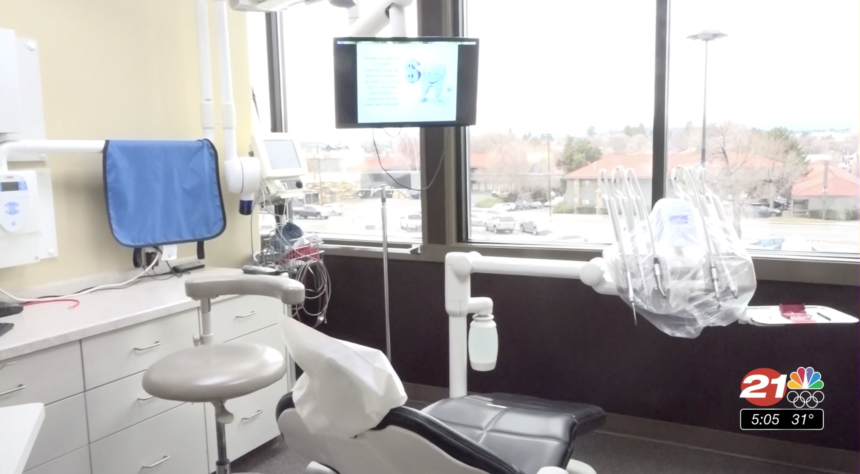OSU study: Seniors risk ER visits if dentists prescribe opioids atop other meds

PORTLAND, Ore. (KTVZ) — When dentists prescribe opioid painkillers to older patients who are already taking medication for depression or anxiety, the combination of drugs increases patients’ risk of landing in the emergency room and being hospitalized, according to a recent Oregon State University study.
Though electronic health records have improved in recent years, dentists are often still out of the loop when it comes to their patients’ full medication history, and patients may not remember every pill they’re taking.
This can lead to dentists inadvertently prescribing painkillers that should not be taken with other medications, especially those that act on the central nervous system.
“There is this unfortunate opportunity for dentists to prescribe opioids for any acute or chronic pain that the elderly adult is having, and it may actually pose dangerous interactions for those other medications they’re on and place them at greater risk of 30-day ER visits and cause hospitalizations,” said study co-author Jessina McGregor, an epidemiologist and associate professor in OSU’s College of Pharmacy.
Part of the challenge is that older adults are more likely to be dealing with several medical issues at a time and taking multiple kinds of medication. They may also metabolize drugs differently because of age and changes in their renal function, McGregor said.
For the study, researchers analyzed dental and medical data for 40,800 patients ages 65 and older across the U.S. from the years of 2011-2015.
One in 10 of those who were prescribed opioids by their dentist were also taking medication that should not be taken with opioids, the study found. These patients were in turn 23% more likely to visit the emergency department or require hospitalization within 30 days of the dental visit where they received the opioid prescription.
The duration of the prescription compounded the problem: Patients whose opioid prescription overlapped with their existing non-compatible medication for more than three days were 47% more likely to require some form of acute medical care than patients who were not on an unhealthy combination of medications.
In total, patients in the study experienced 947 acute care events — emergency room visits and hospitalizations — in the 30 days after their dental visit.
These results suggest that dentists should be better integrated into electronic health records and health care systems so they have access to patient records, and that patients should be more aware of the risk of mixing prescriptions and the importance of giving an accurate medication history, the researchers say.
“From a patient-empowerment perspective, it’s valuable to have primary care providers advise patients to keep a list of their medications, and to share that list with other providers,” McGregor said. “That supports the dentist’s ability to make the best prescribing decisions for patients.”
Another key to the solution is for pharmacists to take a more active role in explaining medications and their possible negative interactions to patients. McGregor encourages people to be consistent in where they pick up their prescriptions, so their pharmacist has all their medication information in one location.
Going forward, the research team is examining dental opioid prescriptions within the VA system and plans to look more deeply into the reasons for those prescriptions and the specific doses set by dentists.